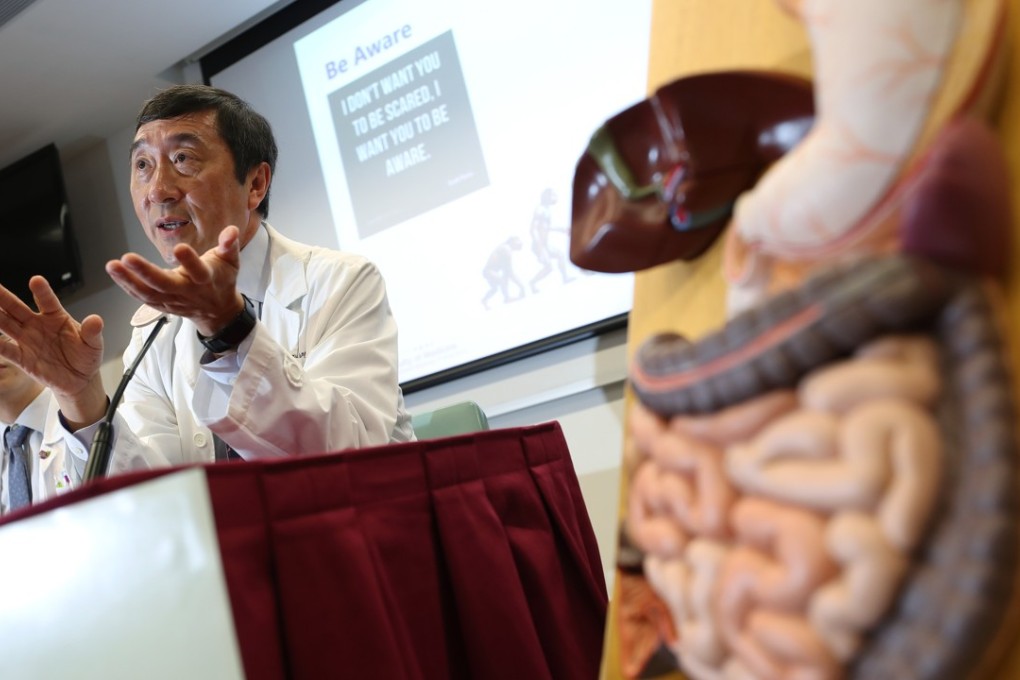New Chinese University study finds possible link between rise in obesity and number of Hongkongers getting colorectal cancer at younger age
Researchers find increase in cases among city’s residents under the age of 55, while latest figures show more than 5,000 were diagnosed with the disease

More people in Hong Kong are getting colorectal cancer at a younger age, and rising obesity could be a major cause, Chinese University researchers said on Tuesday.
The team studied data from more than 100 million people in six cities and countries – Hong Kong, Shanghai, Japan, Britain, the United States and Sweden – collected between 1988 and 2007. They found an annual increase of 1.7 per cent in colon cancer cases, and a rise of 3.5 per cent in rectal cancer cases among Hongkongers under the age of 55.
In contrast, the number of people in the city aged 55 or older suffering from colon cancer fell annually by 1.3 per cent.

“Obesity might be an important factor [leading to the younger trend of colorectal cancer],” said Professor Joseph Sung Jao-yiu, who was involved in the study.
Colorectal cancer is the most common cancer in Hong Kong, with the latest statistics from the city’s cancer registry showing more than 5,000 people diagnosed with the disease in 2015. The disease can start in either the rectum or colon.
The university used cancer and population data from the World Health Organisation’s International Agency for Research on Cancer to conduct its analysis, and found close to 66,000 people from the 100 million profiles were diagnosed with colorectal cancer.